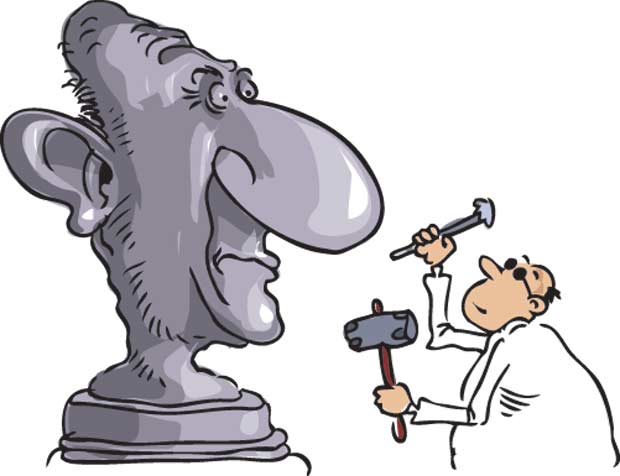Reply To:
Name - Reply Comment
 major step in good governance, democracy and social justice was taken on Sunday when the Cabinet agreed on a draft constitutional amendment to prune certain powers of the Executive Presidency.
major step in good governance, democracy and social justice was taken on Sunday when the Cabinet agreed on a draft constitutional amendment to prune certain powers of the Executive Presidency.
The new National Unity Government headed by President Maithripala Sirisena and Prime Minister Ranil Wickremesinghe had during the election campaign given solemn pledges it would either abolish the all-powerful Executive Presidency or reduce some of the powers. After weeks of controversy between the UNP which heads the minority Government and the main Opposition SLFP leaders held a special meeting on Sunday to resolve the conflict on a win-win basis or accommodation on the middle path. This agreement was ratified by the UNP-dominated Cabinet at a special session on Sunday afternoon. The draft of the 19th Amendment was gazetted yesterday.

It appears to be a healthy consensus and compromise after consultations among all parties with most leaders ready for a paradigm shift or change of perception to reach a fair and just solution acceptable to all and for the common good of the country.
Mr. Sirisena, a former Minister and General Secretary of the SLFP, dramatically crossed over on November 21 with a few other ministers and was elected as Executive President largely on the votes of the UNP, minority parties such as the TNA and the SLMC and other parties such as the JHU and the JVP. This National Democratic Front had pledged good governance or Yahapalanaya and that it would make major changes in the Executive Presidential system. NDF leaders said their main objective was to oust the Mahinda Rajapaksa regime which they accused of running a quasi dictatorship which led to the breakdown of the rule of law, criminalisation of politics and the alleged plunder of public funds.
This main objective was achieved on January 8, a historic turning point for Sri Lanka with the Ven. Maduluwawe Sobitha Nayaka Thera—pioneer of the National Unity Government—describing the election victory as a miracle. He and other NDF leaders had alleged that the Rajapaksa regime had busted up more than Rs. 250 billion for its election campaign, mainly from public funds and huge donations from shady businessmen. Whatever happened or did not happen during the past regime, the focus now must be on the new political culture.
The new Government leaders and others now need to go beyond personal or party gain and glory and work sincerely for the common good of all the people of the country. President Sirisena has set the example by living in a simple and humble way without luxuries or wasteful expenditure while pledging he would be the chief servant leader of the people. The Prime Minister, the Cabinet, leaders of other parties, MPs and local council politicians need to follow this example of Alpechchathawaya and servant leadership. Otherwise they will not get nominations or according to the proposed code of ethics they will be expelled from Parliament or local councils if they try to grab from the country instead of giving to the country.
Reports say the party leaders on Sunday decided to empower President Sirisena, Prime Minister Wickremesinghe and former President Chandrika Bandaranaike Kumaratunge to decide when Parliament should be dissolved. It is apparent that the main parties are still seeking an early or later dissolution of Parliament mainly for the personal gain of the party. They need now to rise above it and be conscious that for millions of suffering people the priority would clearly not be another bitterly-fought general election but social justice and effective measures to bring about a more equitable distribution of wealth and resources. We hope that in the spirit of the Yahapalanaya the political leaders will work for the common good of all the people of our country to make Sri Lanka a model for Asia if not the world.